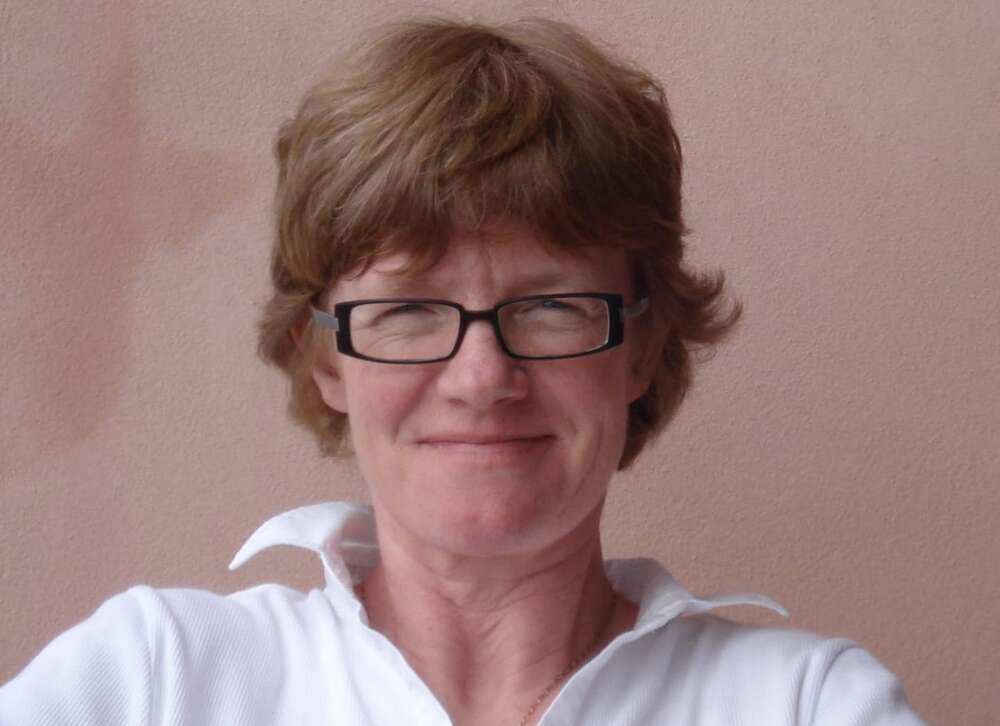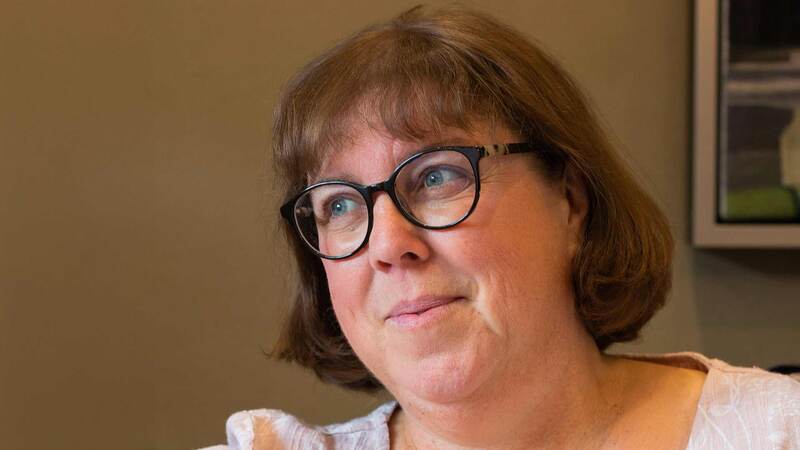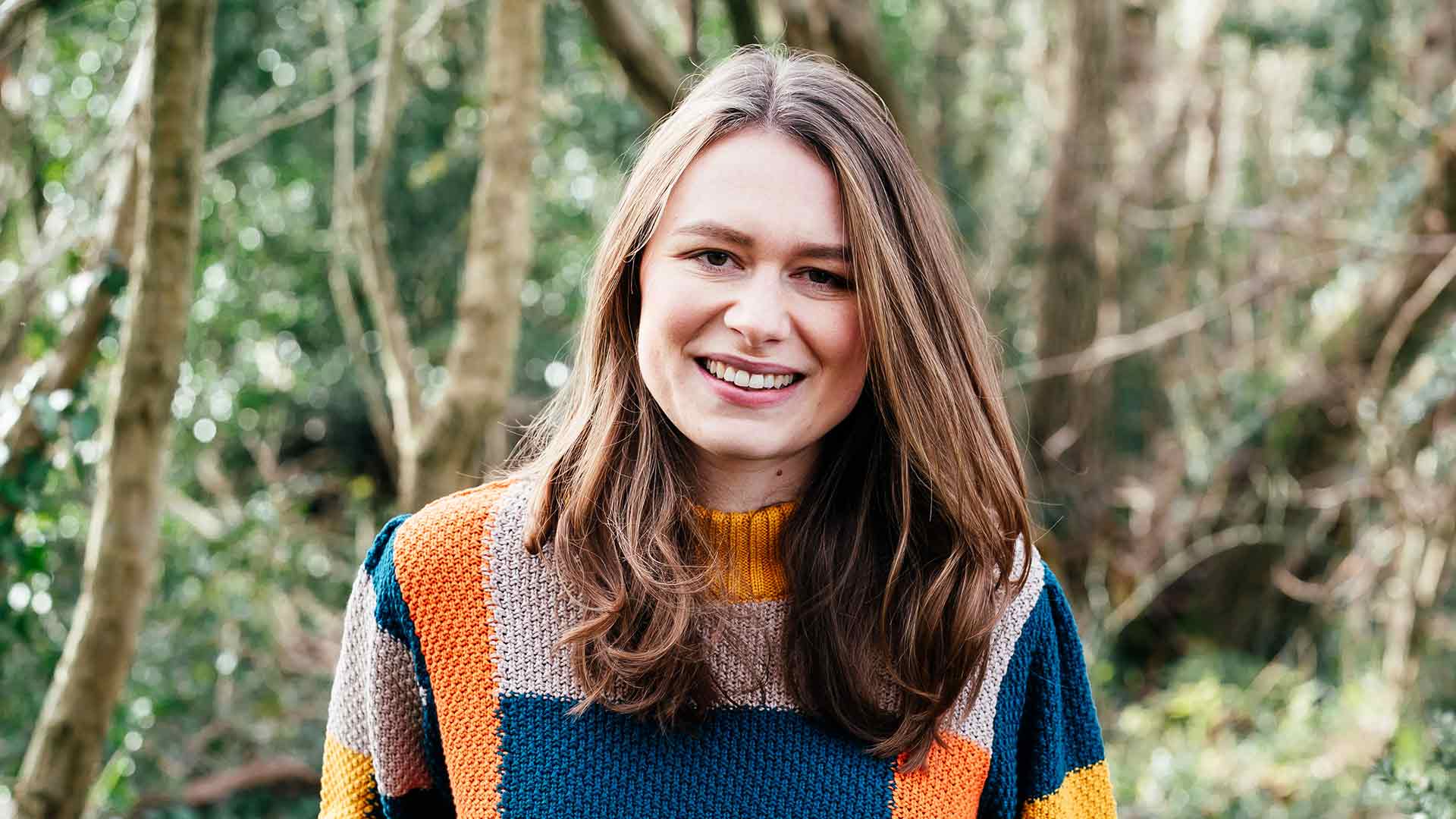You are viewing your 1 free article this month. Login to read more articles.
Sarah Bakewell | 'Technology is inextricable from the way we conduct our lives, the way we feel about things'

Caroline Sanderson is a non-fiction writer, editor and books journalist. Her books include a travel narrative, A Rambling Fancy: in the F ...more
 Caroline Sanderson
Caroline SandersonCaroline Sanderson is a non-fiction writer, editor and books journalist. Her books include a travel narrative, A Rambling Fancy: in the F ...more
"What is it to be a table? What is it to be anything?” Across such a table in the British Library’s cafeÃÅ, Sarah Bakewell is defining Phenomenology, a form of philosophy which became influential in Germany in the 1930s. It’s tricky, elusive stuff, but in At the Existentialist CafeÃÅ: Freedom, Being and Apricot Cocktails (Chatto, March), Bakewell provides a riveting narrative around how it came to provide a new way of thinking for the French existentialist philosophers of the 20th century.
The book opens in the Bec-de-Gaz bar on Rue du Montparnasse in Paris, with twentysomethings Jean-Paul Sartre and Simone de Beauvoir also seated around a table, in the company of Sartre’s debonair school friend Raymond Aron. Aron, recently returned from Berlin, is talking about his new German discovery, Phenomenology. Sartre is so enthused by what he hears that he rushes out to the nearest bookshop to buy a book on the subject. He tears the uncut pages open, without waiting to use a paperknife, so that he can start reading it while walking down the street.
It’s about how you experience the simplest things in life, how you speak to the waiter, how the waiter serves your coffee, what you talk about with your friends as you sit around drinking apricot cocktails
What had so captivated Sartre, explains Bakewell, was that instead of dwelling on abstract axioms or theories, German phenomenologists such as Edmund Husserl and Martin Heidegger argued that philosophers should cut to the chase of what it is to be. Philosophy, they said, is about what’s right here, right now, in front of you. “It’s about how you experience the simplest things in life, how you speak to the waiter, how the waiter serves your coffee, what you talk about with your friends as you sit around drinking apricot cocktails,” Bakewell says.
Thus, at the turn of 1932‚Äì33, modern existentialism was born—“a philosophy that became international in impact, but remained French in flavour”, as Bakewell puts it. Sartre, de Beauvoir and other existentialist thinkers also profiled in her book—including Albert Camus, Maurice Merleau-Ponty and Karl Jaspers— became preoccupied in their various ways with what it is to be an experiencing human being, an individual. And most crucially of all: what it means to be free.
Bakewell has a gift for making philosophy come alive through an engaging blend of memoir, biography and cultural history. Her award-winning How to Live: A Life of Montaigne in One Question and Twenty Attempts at an Answer received wide acclaim and has sold more than 35,000 copies in paperback. Her enquiring mind developed early, the result of a somewhat unconventional upbringing; her parents took her travelling (through India to Australia) between the ages of five and seven, and then again in her teenage years. “I had several years out of school, and sort of learned from life while travelling instead. My parents are quite free-thinking types: they brought me up to find my own way in life. Rather existentialist principles, actually. With Montaigne, I very much related to his own rather strange early childhood, where he was encouraged to explore his own curiosity.”
The Insider
Bakewell’s enthusiasm for the French existentialists, and Sartre in particular, was born when, aged 16, a reading of his philosophical novel Nausea swept her off her feet as she found her teenage self bonding with its “gloomy outsider protagonist”, Antoine Roquentin, who goes to the park and stares at the gnarled exposed root of a chestnut tree, “which looks to him like boiled leather and threatens to overwhelm him by the sheer force of its being”. Bakewell was so taken by this idea that she too took herself off to a park, one near her home in Reading. “I looked at the trees and tried to make them boil and bubble. Of course nothing happened. But it did make me curious and I started to think: why are all these things here and what’s our experience of them?”
A philosophy degree at Essex University followed, and in one of the summer vacations, Bakewell discovered the work of Sartre’s long-term companion de Beauvoir, while selling ice creams in a beach kiosk in Bournemouth. “Occasionally some shivering wreck would come up and optimistically buy an ice cream. But mostly I was left alone to read my way through the four main volumes of her autobiography. They too made a huge impression on me.”
At university, Bakewell also developed a passion for the philosophy of Heidegger, because he spoke “right to the most fundamental things of human experience. The one thing that is well known about Heidegger now is that he was a Nazi sympathiser in the 1930s, and although he left the Nazi Party by 1934, he never convincingly disassociated himself from it. I’m very far from condoning that, and I find Heidegger not at all congenial to me anymore. Neither he nor Sartre could be taken as a role model in any sense. But their ideas go right to the heart of 20th-century cultural history, out of which the 21st century is evolving”.
Freedom and responsibility
It wasn’t long before the new French existentialist thinking was put starkly to the test by the German occupation. Even when swept up by historical forces, we all have to face up to our freedom of choice and take responsibility for our actions, they realised. Bakewell cites a lecture given by Sartre in 1945 in which he tells the wartime story of a young student who couldn’t decide whether to stay in France and look after his mother, who would otherwise be on her own, or run away and join the French Resistance. “He goes to Sartre and says: ‘I’ve consulted all my sources of supposed wisdom but none of them, neither the church, nor the philosophers I read at school, nor even my own conscience will tell me what to do’. And Sartre says: ‘Well here’s my advice. There is no advice. You simply have to decide for yourself.’ Because with freedom comes total responsibility.”
Throughout the second half of the 20th century, existentialism offered people reasons to reject convention and change their lives, Bakewell tells us. (David Bowie, by the way, once remarked: “My work is more existential than nihilist. I’ve always felt comfortable with writers like Camus.”) So much so that idea of individual freedom of choice hardly seems radical to us anymore, and we might think we no longer have much to learn from the existentialists. But Bakewell believes their ideas are still highly relevant. “In some ways, we have far more freedom than ever before. But we’re also quite confused about it. One of the big debates of our time is how we can reconcile the need for freedom in society with the need for security. Another is the question of the freedom of speech and the right to offend. To what extent should we defend freedom of opinion? We are still debating the philosophical concept of freedom, just as the existentialists did.”
Existentialist ideas, says Bakewell, are also pertinent in the context of our hyper-connected, technological world. “One of the key existentialist concepts is the question of what it is to be an authentic human being. And that is fascinating today, when so many of us project different identities online and via social media.”
In the post-war atomic age, Heidegger was, Bakewell believes, the first major philosopher to see our relationship with technology as fundamental. She says: “He saw it as a question about what it is to be a human being, rather than just a practical issue. Which I think is very relevant to us now that technology is inextricable from the way we conduct our lives, the way we feel about things, the way we have relationships with others, the way in which we experience the world.”









